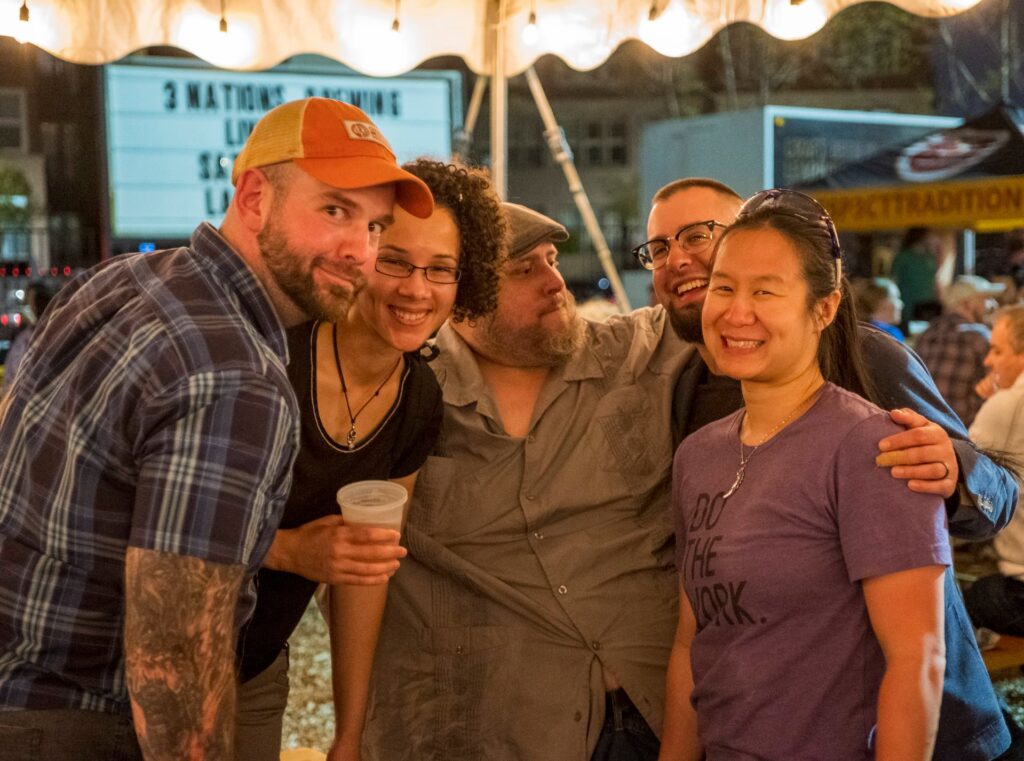
One of the features of being on our own is that we might not have traditional families surrounding us. It might be a result of something so simple as moving away from home, to a new city or state. It might be the result of something as painful and difficult as divorce, death, estrangement, or illness. We might be flying solo, all by ourselves, for the first time in our lives, or returning to the single life after a lifetime attached to another. We might be responsible only for ourselves, or for one or more who are not capable of taking care of themselves. Regardless of how we got here, we are left without the usual folks most people call on when they need help or the default groups to gather with on holidays. We’re the ones in charge, and we’re doing it alone.
But we don’t have to do it completely without support.
Family of choice can fill many of the same roles. They can be difficult to find, hard to grow close to, challenging to learn to trust. They don’t come to us by an accident of birth so much as accidents of geography, activity, or interest. There are no ties that force us to keep trying to build relationships, no expectations that we get along because we’re related by blood. Instead, we choose to connect. We work through the problems when it would be easy to walk away. We grow to love each other because we want to, not because the world thinks we have to. We show up for each other even when we have obligations that might be more understandable for those on the outside, because who does so much for someone who is “only a friend”?
In some ways, family of choice, whether we started out as blood family or not, is stronger because we are not together by default. Our world recognizes this, when you consider that marriage is really a voluntary creation of a normally recognized family. We also understand the concepts of blood brothers, fraternity sisters, and adopted children. Whether the people you pick to fill parental or sibling or other close roles in your life are recognized as such or not, they are still the ones you will reach out to when you need someone to fill those spaces. And they will respond and be there not because of obligation, but because of choice, the very fact of their presence its own statement of how loved you are, how important you are to them.
It’s an incredible thing, finding your tribe – the people who show up for the celebrations and the tears, who accept you with all flaws while gently pushing you to grow, who squeeze you into their busy days when you need them and who you’d happily do the same for. They inspire us, comfort us, cheer us on, and give us purpose. Just like “real” family, or at least the “real” family we think of when we imagine the idealized group of blood relations and what we collectively dream they can do for us. If we come from biological families who have failed us in some ways, or if we’ve always struggled with making friends growing up, it can be difficult to imagine we can end up with people like this in our lives, but it can happen.
You may need courage and vulnerability, to open yourself up to that interesting person you’ve met through your hobbies, or who lives on your block. You may need to try over and over again, making the time to spend together and cement first a casual relationship and then more. You may be hurt and disappointed at times, and mourn friendships that have run their course or blown up after all over some disagreement. But you might also be surprised at who reaches out, who comes into your life when needed, who sticks around when you are having the hardest times of your life.
This weekend, I’m enjoying some of my own family of choice. I hope you get to do that soon too.




